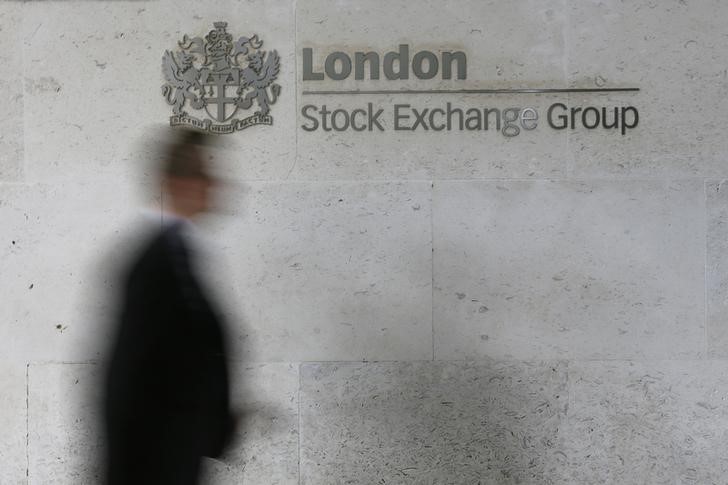Proactive Investors –
- up 13 points
- House sales rebounding
- Shell, BP (LON:) drop as oil sinks
8.58am: Starmer to warn of ‘harsh’ reality ahead of Budget
Prime minister Keir Starmer is set to lay out a stark picture of the UK’s economic state in a speech on Monday ahead of this week’s Autumn Budget.
According to the BBC, Starmer will warn of “unprecedented” economic challenges and the “harsh light of fiscal reality” whilst speaking in the West Midlands.
This comes after the prime minister has previously pointed to a “painful” Budget as the government grapples with what it has dubbed a £22 billion “black hole” in public finances.
A string of tax hikes are expected to be unveiled in the Budget on Wednesday, including higher employer national insurance contributions and an end to stamp duty relief.
Changes to UK fiscal rules have also been signalled by chancellor Rachel Reeves, fuelling speculation tens of billions of pounds worth of spending plans will be unveiled.
“We choose a different path: honest, responsible, long-term decisions in the interests of working people,” Stamer will say.
8.40am: easyJet (LON:), British Airways owner lead index higher
The FTSE 100 overcame a drop as the market opened to rise by 12 points to 8,261 on Monday morning, despite heavyweights BP PLC (LSE:BP.) and Shell PLC (LSE:LON:, NYSE:SHEL) weighing on the index.
Though the duo faced a hit as oil prices dropped by 4%, the decline aided a boost for airlines as the prospect of cheaper fuel costs emerged.
easyJet PLC led the risers early on as a result with a 4.1% gain, followed by British Airways owner International Consolidated Airlines Group (LON:) SA (LSE:IAG), up 2.4%.
JD Sports Fashion PLC (LSE:LON:.) was also among the early risers, alongside NatWest Group PLC (LSE:LON:), Vistry Group (LON:) PLC (LSE:VTY) and Intercontinental Hotels Group PLC (LSE:LON:).
8.24am: Oil sinks on Middle East de-escalation hopes
Oil prices slid on Monday morning as hopes built that escalations could be easing in the Middle East despite an Israeli strike against Iranian military targets over the weekend.
Benchmark fell over 4% as trading got underway for the week to US$72.60 a barrel.
Israel hit around 20 military bases across Iran on Saturday morning, following a strike by the latter earlier in the month.
Swissquote Bank analyst Ipek Ozkardeskaya noted that the targeting of military sites and not nuclear or oil infrastructure in the latest attack had come as a relief.
“The cherry on top, Iran didn’t vow to respond, in a clear sign of de-escalation – or at least not a re-escalation – of the tensions in the region,” she added.
President Joe Biden had told reporters “I hope this is the end” in the aftermath of the strike, prompting speculation that months of escalation could finally be scaled back.
FTSE 100 heavyweights BP PLC (LSE:BP.) and Shell PLC (LSE:SHEL, NYSE:SHEL) led fallers on the index following the drop in oil on Monday morning, dipping by 1.8% and 1.9% respectively.
8.05am: House sale activity booms on income growth and falling mortgage rates
Sales activity across Britain’s housing market has hit its highest in four years thanks to income growth and falling mortgage rates, according to Zoopla.
Some 306,000 homes collectively worth £113 billion are currently in the process of being sold, marking a 30% increase year on year and fuelling the highest level of new sales since Autumn 2020.
House prices ticked up by just 1% over the year to October in comparison, as growing choice for buyers and affordability issues have kept a cap on increases.
Comparison site Zoopla said the market was on course for a “bumper year” as a result, after a spike on mortgage rates weighed on sales in 2023.
“Overall, the market remains on track for a modest 2% price increase in 2024 and 1.1 million sales,” Zoopla executive director Richard Donnell commented.
First time buyers were said to have largely driven the recovery, with Zoopla forecasting the group would account for 36% of sales over the year… Read more
7.39am: Business confidence declines ahead of Budget
Business confidence has fallen to a four-month low in October as the prospect of tax increases in Wednesday’s Budget weighs on sentiment.
Lloyds Banking Group PLC (LSE:LON:)’s business barometer showed a three-point drop over the month to 44 on Monday.
This reflected falling confidence around the economy as a whole and firms’ own trading prospects, with the drop taking sentiment further from a nine-year high seen this summer.
Chancellor Rachel Reeves is expected to lift the likes of employer national insurance contributions in the Budget this Wednesday, under plans to raise billions to fund further government spending.
The drop in Lloyds’ reading comes after separate surveys from GfK and S&P Global previously also showed business sentiment had dropped ahead of the Budget… Read more
7.15am: FTSE 100 seen higher
Futures had the FTSE 100 climbing by 35 points ahead of Monday’s open as a busy week of blue chip earnings and the Autumn Budget loomed in London.
While Monday is set to be quiet on the reporting front, BP PLC (LSE:BP.), Shell PLC (LSE:SHEL, NYSE:SHEL), HSBC Holdings PLC (LSE:LON:) are all due to update later in the week, alongside the likes of Amazon.com Inc (NASDAQ:), Apple Inc (NASDAQ:, ETR:APC) and Microsoft Corp (NASDAQ:) from across the Atlantic.
The FTSE 100 had dropped by 109-point drop over the course of last week, with the looming Budget, this Wednesday, among factors weighing on stocks.
Overnight, Asian markets faced a mixed performance, with Japan’s enjoying the biggest gain of 1.82%.
Benchmark Brent crude slumped on Monday morning in the meantime to US$72.86 a barrel after a strike by Israel on Iranian military targets did not prompt a vow to respond.

